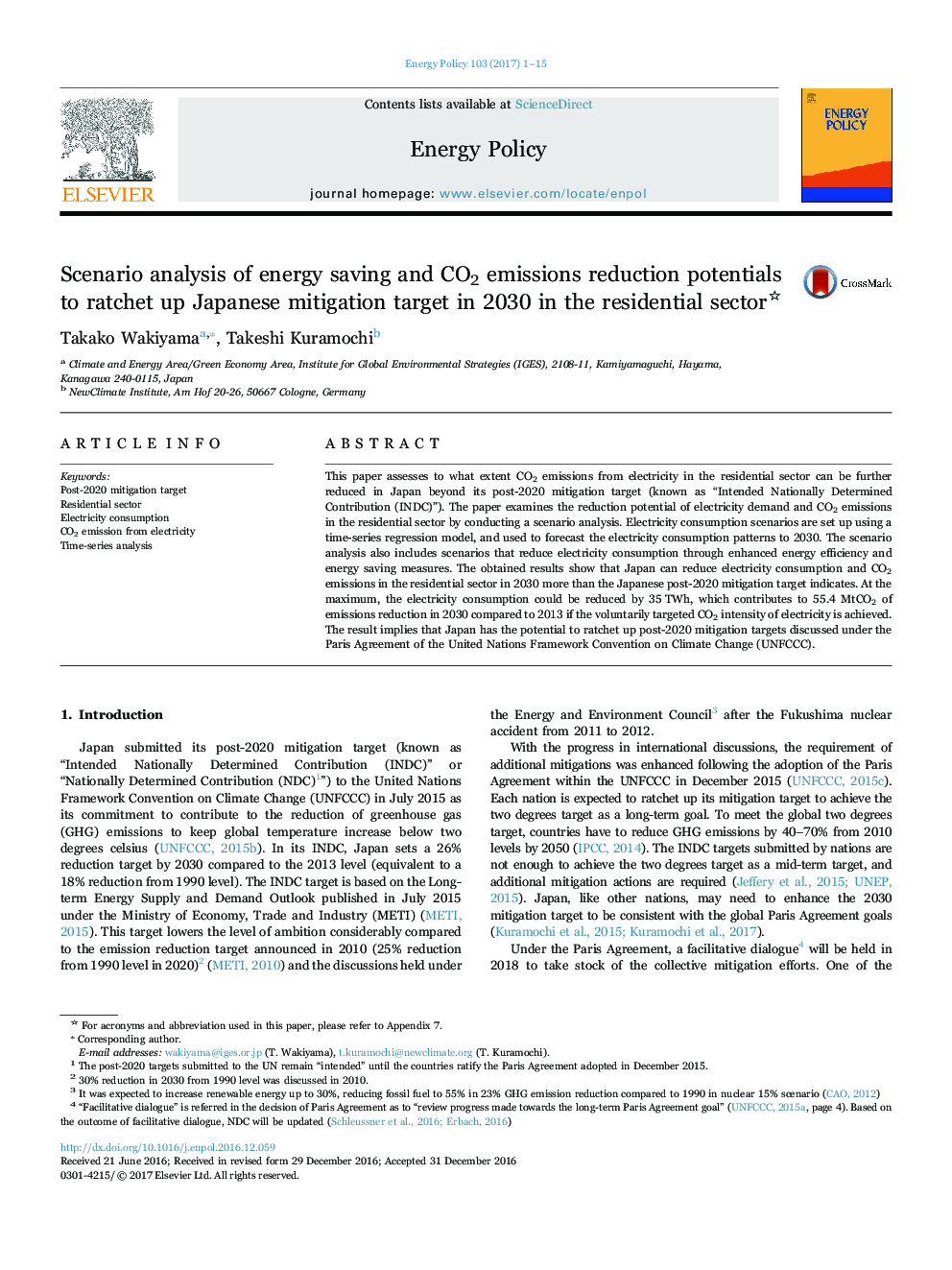| کد مقاله | کد نشریه | سال انتشار | مقاله انگلیسی | نسخه تمام متن |
|---|---|---|---|---|
| 5106154 | 1481255 | 2017 | 15 صفحه PDF | دانلود رایگان |
عنوان انگلیسی مقاله ISI
Scenario analysis of energy saving and CO2 emissions reduction potentials to ratchet up Japanese mitigation target in 2030 in the residential sector
دانلود مقاله + سفارش ترجمه
دانلود مقاله ISI انگلیسی
رایگان برای ایرانیان
کلمات کلیدی
موضوعات مرتبط
مهندسی و علوم پایه
مهندسی انرژی
مهندسی انرژی و فناوری های برق
پیش نمایش صفحه اول مقاله

چکیده انگلیسی
This paper assesses to what extent CO2 emissions from electricity in the residential sector can be further reduced in Japan beyond its post-2020 mitigation target (known as “Intended Nationally Determined Contribution (INDC)”). The paper examines the reduction potential of electricity demand and CO2 emissions in the residential sector by conducting a scenario analysis. Electricity consumption scenarios are set up using a time-series regression model, and used to forecast the electricity consumption patterns to 2030. The scenario analysis also includes scenarios that reduce electricity consumption through enhanced energy efficiency and energy saving measures. The obtained results show that Japan can reduce electricity consumption and CO2 emissions in the residential sector in 2030 more than the Japanese post-2020 mitigation target indicates. At the maximum, the electricity consumption could be reduced by 35Â TWh, which contributes to 55.4 MtCO2 of emissions reduction in 2030 compared to 2013 if the voluntarily targeted CO2 intensity of electricity is achieved. The result implies that Japan has the potential to ratchet up post-2020 mitigation targets discussed under the Paris Agreement of the United Nations Framework Convention on Climate Change (UNFCCC).
ناشر
Database: Elsevier - ScienceDirect (ساینس دایرکت)
Journal: Energy Policy - Volume 103, April 2017, Pages 1-15
Journal: Energy Policy - Volume 103, April 2017, Pages 1-15
نویسندگان
Takako Wakiyama, Takeshi Kuramochi,